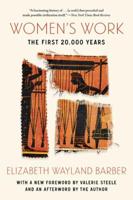Publisher's Synopsis
As competing American, European, and later Japanese imperial and colonial ambitions spread across the ocean in the nineteenth century, Honolulu emerged as a transnational hub for the exchange of ideas. Rumi Yasutake reveals the pivotal role of women's organizing in this era of rapid globalization, tracing how diverse movements intersected and converged in Hawai'i-with worldwide consequences.
The Feminist Pacific examines transnational networks in Hawai'i beginning in 1820, with the arrival of American missionary wives, and through the rise of women's internationalism in the interwar years. It follows an array of suffragists, missionaries, maternalists, and antiwar activists in their international campaigns for peace and social justice that culminated in the formation of the Pan-Pacific Women's Association (PPWA) and subsequent conferences. Yasutake explores how these movements radiated from Honolulu and branched out to the United States, Japan, and China. She illuminates their contradictions, showing how women's striving for collective power went at once in the face of and hand in hand with globalization, settler colonialism, and imperialism. Yasutake underscores how the PPWA and the movements that formed it wrestled with the dichotomies of their world: home and public, domestic and foreign, native and settler, white and nonwhite, feminist and antifeminist. Bridging nineteenth-century Protestant churchwomen's evangelism with twentieth-century feminist internationalism, this book recasts women's global organizing from the perspective of the Pacific.










